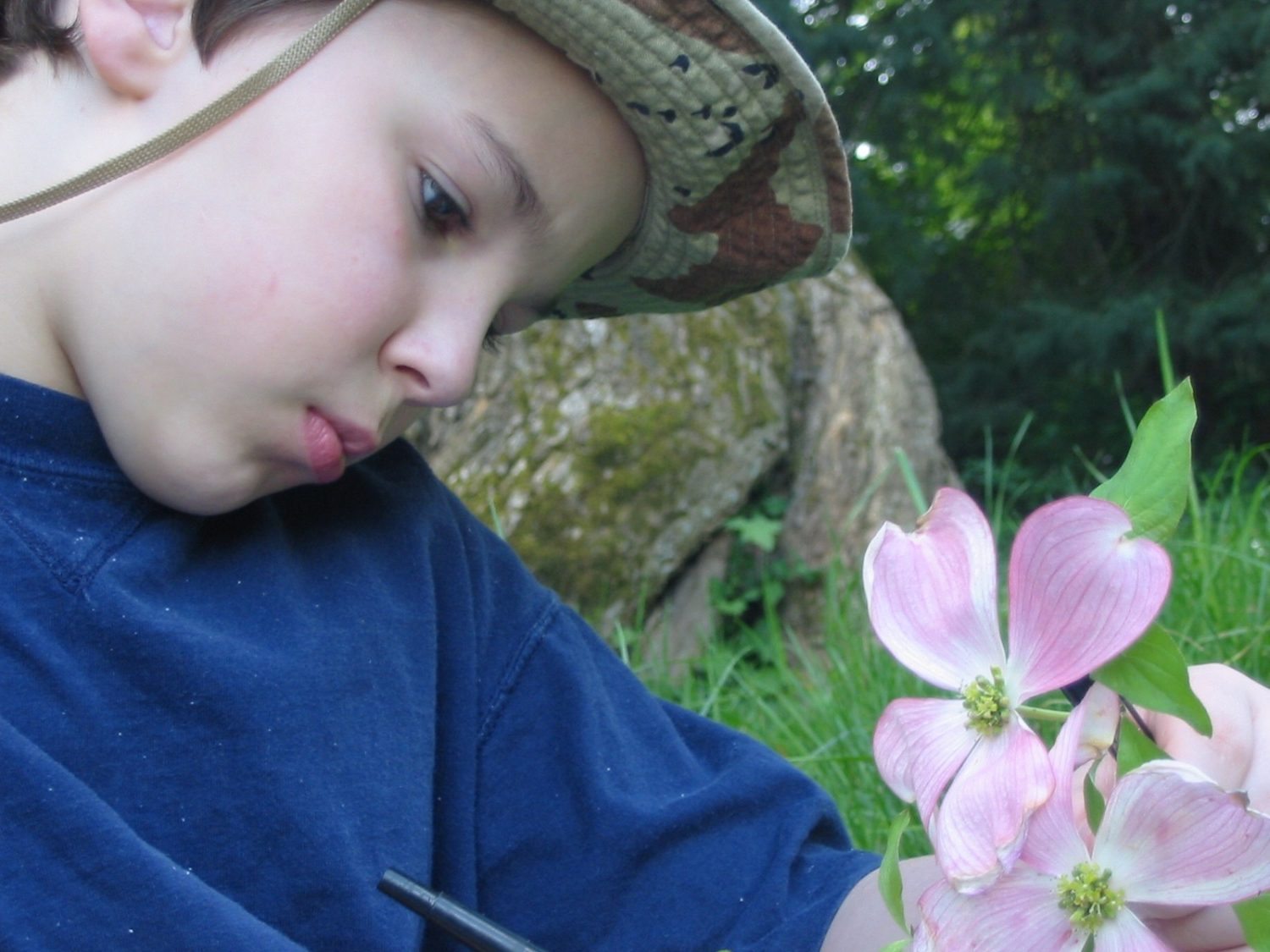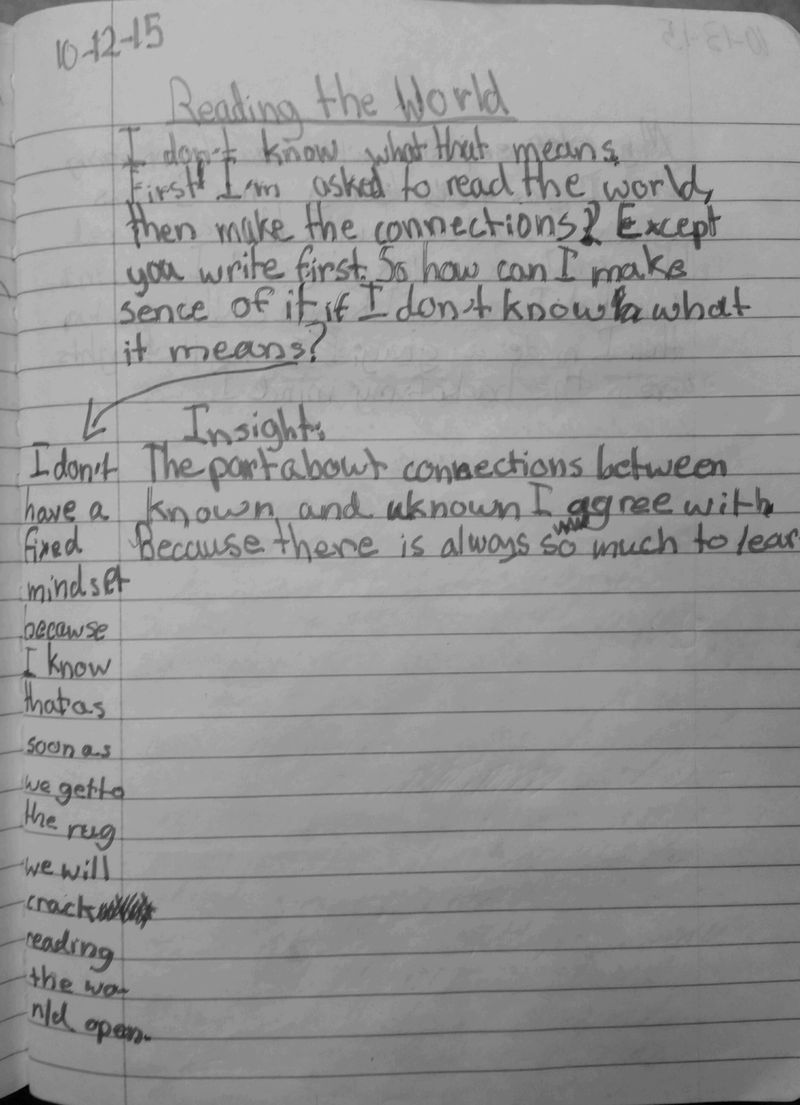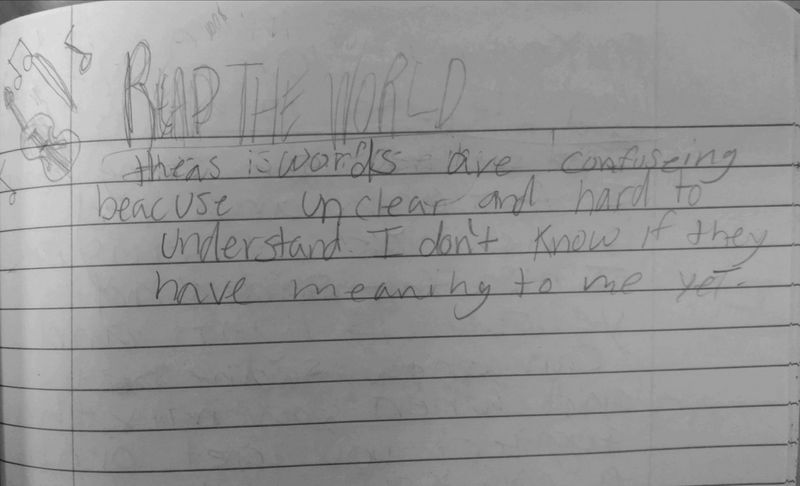Exploring Opal School’s Goals and Expectations for Students: Part 1

One important document that lives inside the family handbook that goes home at the beginning of each year is Opal School’s goals and expectations for students. As teachers, this document is a critical piece of our work. We use it as a resource for planning, reflecting and assessing. It serves as a guiding document that provides an important frame for us to look through as teachers.
- Discover, cultivate and express the joy and wonder of learning
- Develop an understanding and curiosity about multiple points of view. Have value and empathy for experiences and perspectives different from one’s own.
- Collaborate with others to construct ideas and create new knowledge.
- Develop an understanding of our interdependent relationship with the natural world.
- Take action as mindful citizens who care about making contributions to a future that acknowledges living systems as an integrated whole.
- Develop strategies that contribute to the quality of the community by having a keen sense of place, identity and belonging while respecting the rights and identities of others.
- Read the world: Explore ideas and relationships; make connections between known and unknown information.
- Use the written and spoken word with increasing proficiency to communicate ideas, relationships and understandings.
- Uncover and communicate observations, questions, theories and ideas through skillful and imaginative uses of the languages of the arts and sciences, including mathematics.
- Develop an appreciation of and capacity for accuracy, elegant design and efficiency.
We know that without stories to accompany these goals and expectations they are just words on a page. Each day, month, and year, we work to make meaning of them, to find evidence of them in action. We attach stories and images and experiences to these words to give them meaning.
Although the Goals and Expectations heavily influence the work we do each day, we weren’t sure whether the students in Opal 4 were aware of them. We wondered what it might look like to share and make meaning of these goals and expectations together with the students in Opal 4. And we thought, if we were choosing to evaluate students on these Goals and Expectations, then shouldn’t we make sure they are visible and have meaning to the students as well?
We decided to spend some time in Opal 4 sharing and unpacking these goals and expectations and we started with just one.
We asked the children to begin by reflecting through writing.
What does this mean to you?
Read the world: Explore ideas and relationships; make connections between known and unknown information.
As the students encountered this first goal, it was evident that there were many questions. For many, we initially saw frustration as they worked to find a starting point to make meaning of these words.
We used a strategy we often use when trying to chew on ideas together: dialogue. As we gathered together to continue exploring this goal and expectation, we celebrated the uncertainty from which so many seemed to be starting. We encouraged the practice of asking questions, and began to move from frustration toward trust that we would build some understanding together.
Teacher: Let’s come back to this Goal and Expectation and try to crack this one open a little more.
PK: I’m curious. How can you make connections between known and unknown information if you don’t know the unknown information?
SM: How do you read the world?
SN: What language does the world speak and write in?
ED: I cracked it open a little and I think reading the world is like taking a new perspective on it. Explore the ideas and relationships is like testing it to see how it works out. Testing your perspective?
Teacher: Can you talk more about what you have to do to take on a new perspective?
ED: Looking at things in different ways. And when you make connections become known and unknown, once you’ve tested it, you have some results and then you can make more connections. You’re seeking something.
KC: Is it just for reading?
Teacher: Do you mean, does that word mean something bigger than reading a page? What does read mean in this context?
NJ: Understanding the world.
MC: Beyond paper?
SN: Does read have to be on paper? Read is just like scanning something. If you saw a bunch of trees in a random cluster, you might think nature made that – but if you saw them in a row, you might assume man planted that.
LD: In your brain you can have a little tiny idea that was planted in your brain. You can think about it for a while and plant it in your brain and connect with it.
AG: Rereading your thinking and if you are thinking something in your head and you want to say it out loud, you reread it in your head – like editing your thinking before you share.
TG: It’s like you read it. You can read people’s emotions just by their eyes. You’re looking at them. You’re making an assumption.
SM: Can I bring this home so I can read it before I go to sleep? Maybe if I sleep on it, I’ll understand it more.
After some time to “sleep on it” and an invitation to find evidence of where and when this might be happening throughout their day, Opal 4 students came back together to continue making meaning of this goal and expectation.
TG: It’s like I just want to say it’s kind of like read the world- when you’re reading the world, it’s not reading a book. It’s more just reading… being in that zone when you’re able to look at something and know it.
KC: What that means is just scanning- basically looking, focusing and thinking about… Like I’m looking at Aoife’s earrings- it’s kind of noticing what you see.
ABM: Maybe when you see something you use all of the strategies you would in reading- think about it like a book and make predictions and go into the character’s perspective and do things like that.
Teacher: What about in your community?
ABM: It would help you finish the story- think about how they are feeling- you could try to go into the characters. You could pretend you are reading a book and pretend to be that person.
AM: Maybe it means to step into the third person- to not be a part of it and be a bystander. To narrate the story and not be in the story. Step out and watch for a second.
Teacher: What do you think teachers are paying attention to?
AM: People being aware of themselves and others and acting on it.
TG: With Kennedy’s scanning idea- I think it’s kind of like if you think about it, when you’re out in the world- it’s kind of like read and explore are the same thing. It’s kind of like when you read the world you’re exploring the world. We do a lot of stuff- like in nature and go on field trips.
DR: I was just thinking that it was sort of a new thing. To be just told that was one of the goals, it was like a hidden goal. I think people are still adjusting to the idea that that was the goal and still processing information.
AM: But it’s also kind of like a goal that you’ve lived up to always, because that’s just what you do.
DR: But hidden. It’s sort of like in our everyday life but we don’t think of it as that. To think that we think that is normal is a big amazing thing.
CW: Is this something that by the time we leave Opal we’ll have inside of us?
PK: I think that really depends upon you- if you want it to be. If someone said that to you in 20 years you’d probably say we were talking about this at Opal.
CW: I don’t think you would.
PK: But it might still be a little bit inside of you. Maybe they don’t realize they were doing it. At Opal, since this is the goal or one of the goals we can actually recognize it.
SM: I’m no rocket scientist, but I think that when we move to middle school, high school, or college you might just have it in you- it’s kind of a built thing- I won’t think ok, read the world- I think I’ll just do it.
These are lofty goals, not just something that you can accomplish and then check off the list and move on. These are goals that people will spend a lifetime working on. We’re never finished. But Opal 4 has described exactly what we hope will happen when students leave Opal School and go out into the world. We hope these ideas become a part of who we are and how we live in this world.
We’ll continue to share and reflect on how we’re making meaning of these Goals and Expectations in Opal 4 with you in more blog posts to come.


